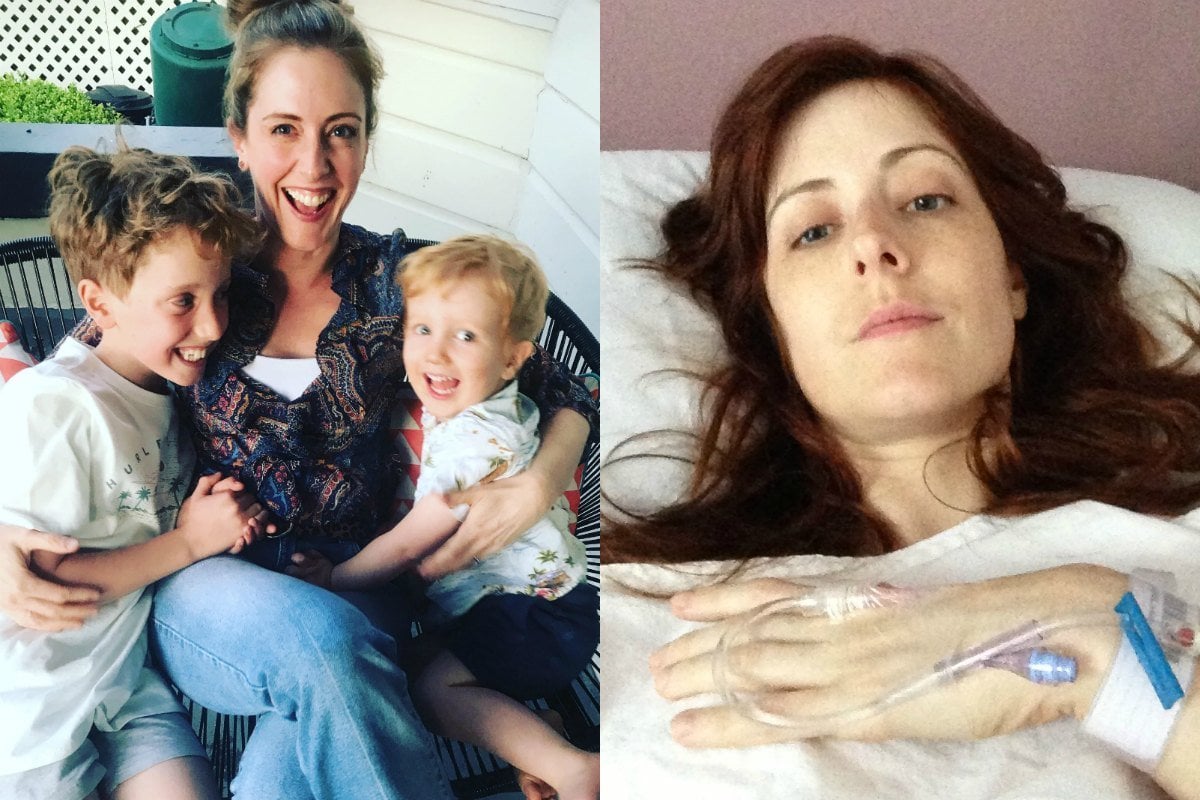
Content warning: This post deals with miscarriage and may be triggering for some readers.
Since I had my first miscarriage nine years ago, I have seen a lot of positive change in the ways we openly discuss pregnancy loss.
Last year’s amendment to the Fair Work Act, which allows for two days of leave following a miscarriage, thanks to the research and lobbying from miscarriage support network Pink Elephants, shows that things are moving in the right direction.
But while two days leave is a great start, I can tell you after my personal experience of three miscarriages, that 48 hours' leave is simply not enough.
Watch: Tina Arena talks to Mia Freedman about her pregnancy loss. Post continues below.
In 2013, when I excitedly turned up for my routine 12 week pregnancy scan, I was told the devastating news that I had miscarried.
The kind sonographer gently directed me to go home and see my GP for a referral to the local 'early pregnancy unit' at the obstetrics outpatient unit.

